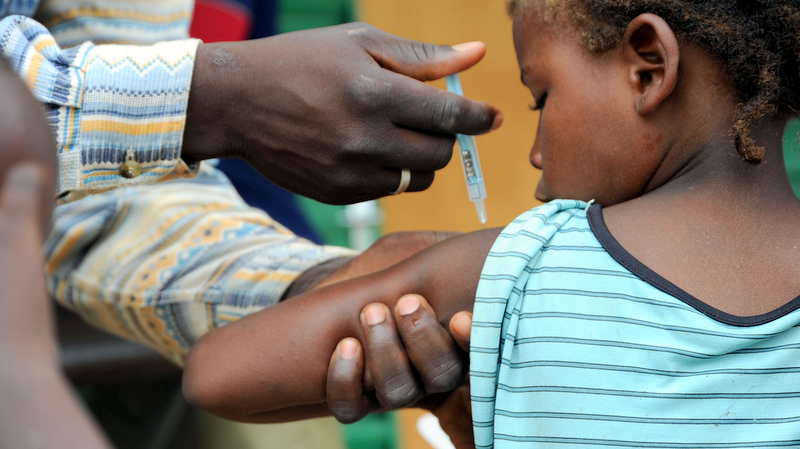“Nearly 20 million infants missed at least one dose of the life-saving diphtheria, tetanus, and pertussis (DTP) vaccine in 2024, with 14.3 million of them classified as “zero-dose” children, meaning they did not receive a single dose of any vaccine.
This alarming revelation was made in new immunization coverage estimates jointly released by the World Health Organization (WHO) and UNICEF on Tuesday.
According to the report, nine countries accounted for over half of these unprotected children. Nigeria topped the list with 2.1 million zero-dose children, followed by India (990,000) and Sudan (838,000).
Other countries with high numbers include the Democratic Republic of Congo (DRC), Ethiopia, Indonesia, Yemen, Afghanistan, Angola, and Pakistan.
Despite these figures, the report also highlights some progress. In 2024, 89% of infants globally (about 115 million) received at least one dose of the DTP vaccine, while 85% (around 109 million) completed the full three-dose regimen.
This marks an increase of 171,000 children receiving at least one vaccine dose and one million more completing the full DTP series compared to 2023.
While these gains are modest, WHO says they represent a positive trajectory toward global vaccination goals, with 4 million more children vaccinated than the 2024 benchmark needed to stay on track with the Immunization Agenda 2030 and 1.4 million more than the 2019 baseline year.
WHO Director General Dr. Tedros Ghebreyesus said, “Vaccines save lives.” “It’s encouraging to see continued increases in child immunization. However, cuts in aid and misinformation threaten decades of progress. WHO remains committed to working with partners to ensure no child is left behind.”
UNICEF Executive Director Catherine Russell echoed the urgency, warning that millions of children remain exposed to preventable diseases due to shrinking health budgets, fragile healthcare systems, misinformation, and access barriers caused by conflict and displacement.
She said “No child should die from a disease we already know how to prevent.”
Dr. Sania Nishtar, CEO of Gavi, the Vaccine Alliance, noted that despite significant improvements in lower-income countries where coverage has risen across all Gavi-supported vaccines, challenges like population growth, conflict, and inequity continue to endanger vulnerable populations. She added “Continued commitment from governments and partners is crucial to saving lives and safeguarding global health security,” she added.
In response to the findings, WHO and UNICEF have jointly called on world leaders and partners to:
Close the funding gap for Gavi’s next strategic cycle (2026–2030)
Strengthen immunization systems in conflict and fragile settings
Invest locally and embed immunization within primary healthcare
Counter misinformation through evidence-based strategies to boost vaccine uptake
The agencies stress that reaching zero-dose children must remain a global priority to prevent deadly outbreaks and ensure every child, regardless of where they live, has access to life-saving vaccines.”

